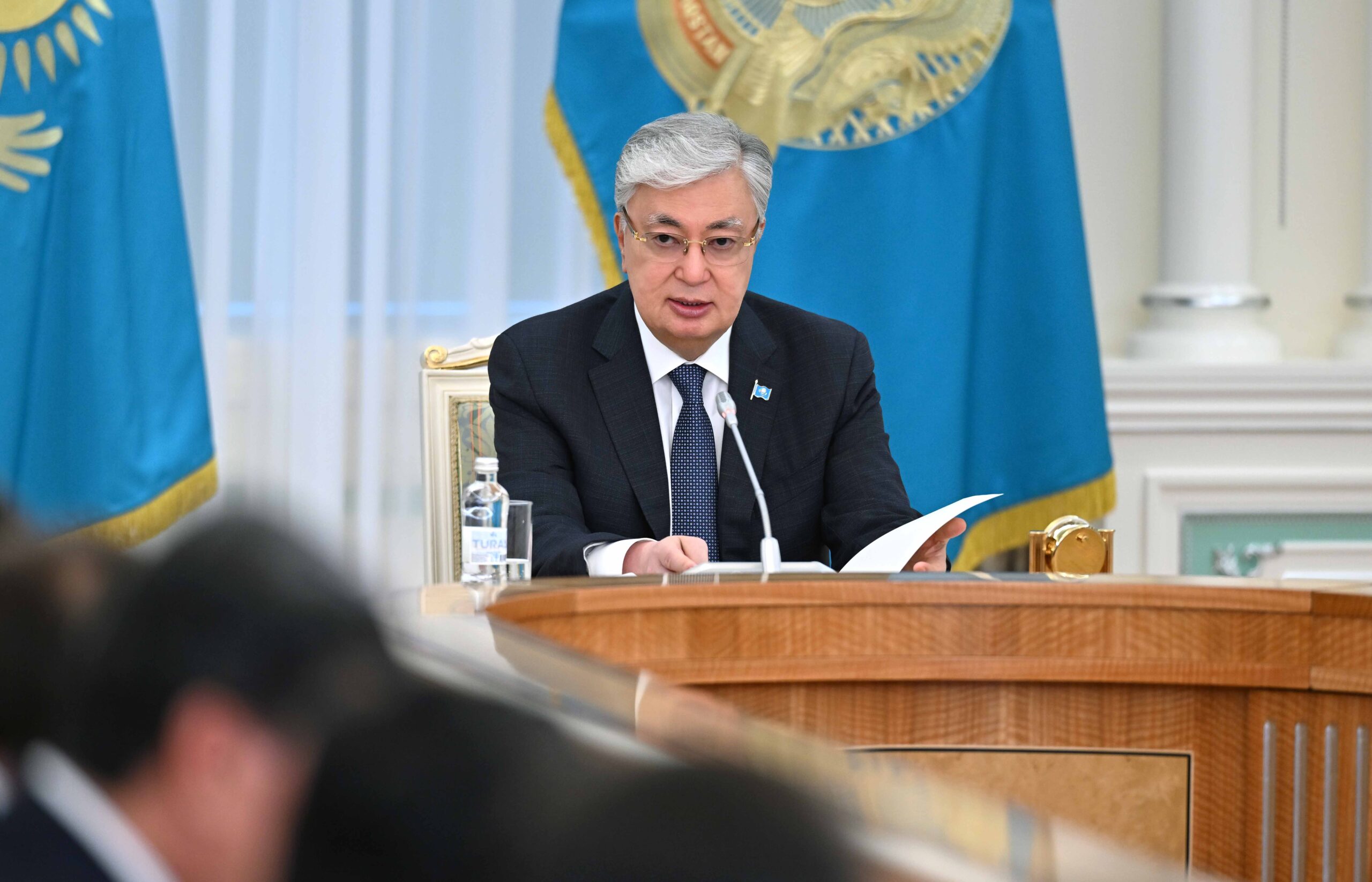ASTANA – President Kassym-Jomart Tokayev highlighted the weaknesses in Kazakhstan’s tourism industry and outlined strategies to address them during a meeting with government officials on June 13.

Kassym-Jomart Tokayev. Photo credit: Akorda
In a press statement released by Akorda, Tokayev affirmed that Kazakhstan has the necessary resources to develop various forms of tourism, including environmental and business tourism. However, he noted that the industry’s share in the national economy has declined from 3.7% to 3.2% over the past four years, which is nearly three times lower than the global average.
The President prioritized enhancing the investment attractiveness of Kazkahstan’s tourism sector. He referenced the World Economic Forum, which ranks Kazakhstan 70th out of 119 countries in terms of the business environment’s development in tourism.
“They [investors] only need infrastructure support. It is necessary to create transparent and stable conditions to attract investors to the tourism industry. The government, along with regional administrations, should start by digitizing master plans for the development of resort areas and ensuring open access to them. Potential investors should have the opportunity to receive up-to-date information on available land plots,” he said.
Tokayev also highlighted the need to attract leading foreign IT specialists to Kazakhstan and instructed the government to launch special programs, such as the Digital Nomad Visa and Digital Nomad Residency, by October.
He identified weak transport infrastructure as a major issue, directing the government to renew the railcar fleet within the next five years, improve railway stations, increase the number of comfortable train carriages, and complete highway construction and improvement projects this year.
Tokayev also prioritized expanding the presence of low-cost airlines on popular air routes, noting that their share in Kazakhstan’s passenger air transportation is currently only 21%.
He noted that this year has been declared the Year of Kazakhstan’s Tourism in China and outlined several tasks to prepare border settlements to accommodate tourists, including completing the modernization of the Bakhty and Kolzhat border checkpoints and establishing constant monitoring of tourist safety.
The President also highlighted the engineering infrastructure problems in tourist areas, emphasizing the need for a separate budget program to provide tourist locations with essential services such as electricity, sewerage, treatment facilities, drinking water, and access roads.
Tokayev criticized the government’s plans to simultaneously develop 20 tourist zones across the country, calling it an inefficient approach that would disperse limited state resources. Instead, he suggested focusing on the most promising destinations that could become global tourism landmarks, specifically mentioning the mountain cluster in the Almaty Region, beach tourism in Mangystau, and the Shchuchinsk-Burabai resort area.
He underscored Almaty’s role as the main center for tourism development in Kazakhstan, accounting for a significant portion of the country’s tourist flow. He stressed the need for further development of the city’s tourism infrastructure to handle the growing number of visitors.
The President called for the government and the Mangystau Region’s administration to attract global hotel and restaurant brands and franchises to improve tourism infrastructure quality. He advocated revising Aktau’s master plan to develop a resort along the coastline, following the example of Dubai and Baku, increase flights to Aktau and accelerate the development of the Kenderli resort area.
Tokayev also noted the unique natural, historical, and cultural monuments of the Shchuchinsk-Burabai resort area as valuable assets, instructing for its expedited infrastructure development.
He highlighted the significance of using major international events in Kazakhstan, such as the upcoming fifth World Nomad Games, to showcase the country’s unique traditions, culture, and sporting achievements.
Focusing on environmental concerns, the President stressed that “it is unacceptable to damage nature under the pretext of developing tourism.” He emphasized the need for dedicated environmental initiatives, such as the Taza (Clean) Kazakhstan campaign, and stated that the success of these efforts depends primarily on public awareness and responsibility.

